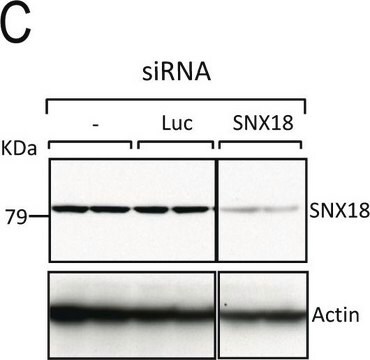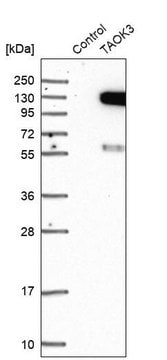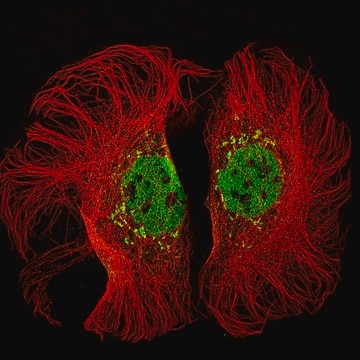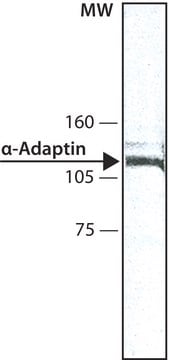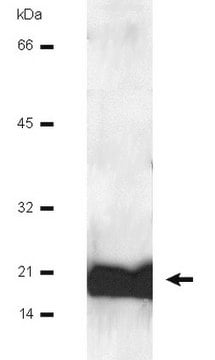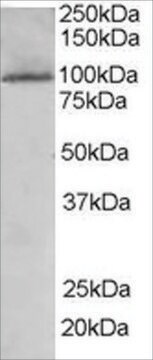MABS1882
Anti-TAOK3 Antibody, clone 1H9.1
clone 1H9.1, from mouse
Sinónimos:
Serine/threonine-protein kinase TAO3, EC:2.7.11.1, Cutaneous T-cell lymphoma-associated antigen HD-CL-09, CTCL-associated antigen HD-CL-09, Dendritic cell-derived protein kinase, JNK/SAPK-inhibitory kinase, Jun kinase-inhibitory kinase, JIK, Kinase from
About This Item
Productos recomendados
biological source
mouse
Quality Level
antibody form
purified immunoglobulin
antibody product type
primary antibodies
clone
1H9.1, monoclonal
species reactivity
mouse, human
technique(s)
immunohistochemistry: suitable (paraffin)
western blot: suitable
isotype
IgG2aκ
NCBI accession no.
UniProt accession no.
shipped in
ambient
target post-translational modification
unmodified
Gene Information
human ... TAOK3(51347)
General description
Specificity
Immunogen
Application
Western Blotting Analysis: 0.5 µg/mL from a representative lot detected TAOK3 in 10 µg of Raw264.7 cell lysate.
Signaling
Quality
Western Blotting Analysis: 0.5 µg/mL of this antibody detected TAOK3 in 10 µg of K562 cell lysate.
Target description
Physical form
Storage and Stability
Other Notes
Disclaimer
¿No encuentra el producto adecuado?
Pruebe nuestro Herramienta de selección de productos.
Storage Class
12 - Non Combustible Liquids
wgk_germany
WGK 1
Certificados de análisis (COA)
Busque Certificados de análisis (COA) introduciendo el número de lote del producto. Los números de lote se encuentran en la etiqueta del producto después de las palabras «Lot» o «Batch»
¿Ya tiene este producto?
Encuentre la documentación para los productos que ha comprado recientemente en la Biblioteca de documentos.
Nuestro equipo de científicos tiene experiencia en todas las áreas de investigación: Ciencias de la vida, Ciencia de los materiales, Síntesis química, Cromatografía, Analítica y muchas otras.
Póngase en contacto con el Servicio técnico